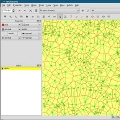|
CGAL 4.14 - CGAL Ipelets
|
|
CGAL 4.14 - CGAL Ipelets
|

CGAL::Ipelet_base<Kernel,int nbf> Classes | |
| class | CGAL::Ipelet_base< Kernel, nbf > |
Ipelet_base is an abstract base class for defining an ipelet. More... | |
Macros | |
| #define | CGAL_IPELET(T) |
The registration of a new ipelet can be done using the macro command CGAL_IPELET. More... | |
| #define CGAL_IPELET | ( | T | ) |
#include <CGAL/CGAL_Ipelet_base.h>
The registration of a new ipelet can be done using the macro command CGAL_IPELET.
Taking as a parameter the name of the class defining the new ipelet, that macro must be placed in the source file after the class definition.